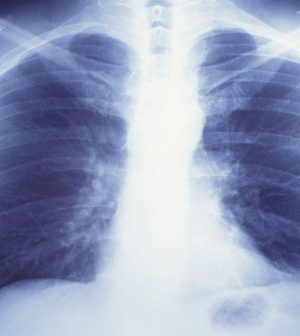- The Best Time of Day to Drink Bone Broth to Maximize Health Benefits
- 8 Ways to Increase Dopamine Naturally
- 7 Best Breads for Maintaining Stable Blood Sugar
- Gelatin vs. Collagen: Which is Best for Skin, Nails, and Joints?
- The Long-Term Effects of Daily Turmeric Supplements on Liver Health
- Could Your Grocery Store Meat Be Causing Recurring UTIs?
- Are You Making This Expensive Thermostat Error This Winter?
- Recognizing the Signs of Hypothyroidism
- 10 Strategies to Overcome Insomnia
- Could Artificial Sweeteners Be Aging the Brain Faster?
High Viral Load in Lungs Drives Fatal COVID-19: Study

A high amount of coronavirus in the lungs is a major contributor to death in COVID-19 patients, new research shows.
The findings challenge previous theories that simultaneous infections such as pneumonia or an overreaction of the body’s immune system are significant factors in COVID-19 deaths, the researchers noted.
To come to that conclusion, the investigators analyzed bacterial and fungal samples from the lungs of 589 hospitalized COVID-19 patients who were severely ill and required mechanical ventilation.
On average, patients who died had 10 times the amount of virus in their lower airways than those who survived their illness.
“Our findings suggest that the body’s failure to cope with the large numbers of virus infecting the lungs is largely responsible for COVID-19 deaths in the pandemic,” said lead study author Dr. Imran Sulaiman, an adjunct professor in NYU Langone Health’s department of medicine.
There was no evidence of secondary bacterial infection as the cause of the deaths, but this may be because the patients received large amounts of antibiotics, said the authors of the study published online Aug. 31 in the journal Nature Microbiology.
Guidelines from the U.S. Centers for Disease Control and Prevention do not encourage giving antivirals such as remdesivir to severely ill COVID-19 patients on mechanical ventilation, but these findings suggest these medications may actually benefit these patients, Sulaiman said in an NYU Langone news release.
According to study senior author Dr. Leopoldo Segal, an associate professor in NYU Langone’s department of medicine, “These results suggest that a problem with the adaptive immune system is preventing it from effectively combating the coronavirus. If we can identify the source of this issue, we may be able to find an effective treatment that works by bolstering the body’s own defenses.”
Segal noted that the study only included patients who survived their first two weeks of hospitalization, so it’s possible that bacterial infections or autoimmune reactions may play a greater role in COVID-19 deaths that occur earlier.
The research team’s next step is to investigate how the microbe community and immune response in the lungs of COVID-19 patients change over time, Segal said.
The death rate for U.S. COVID-19 patients who have to be put on mechanical respirators is about 70%.
More information
The U.S. Centers for Disease Control and Prevention has more on treatment of COVID-19.
SOURCE: NYU Langone Health, news release, Aug. 31, 2021
Source: HealthDay
Copyright © 2026 HealthDay. All rights reserved.










